New Dynamics: How Reformist Calls Sparked Political Controversy in Iran
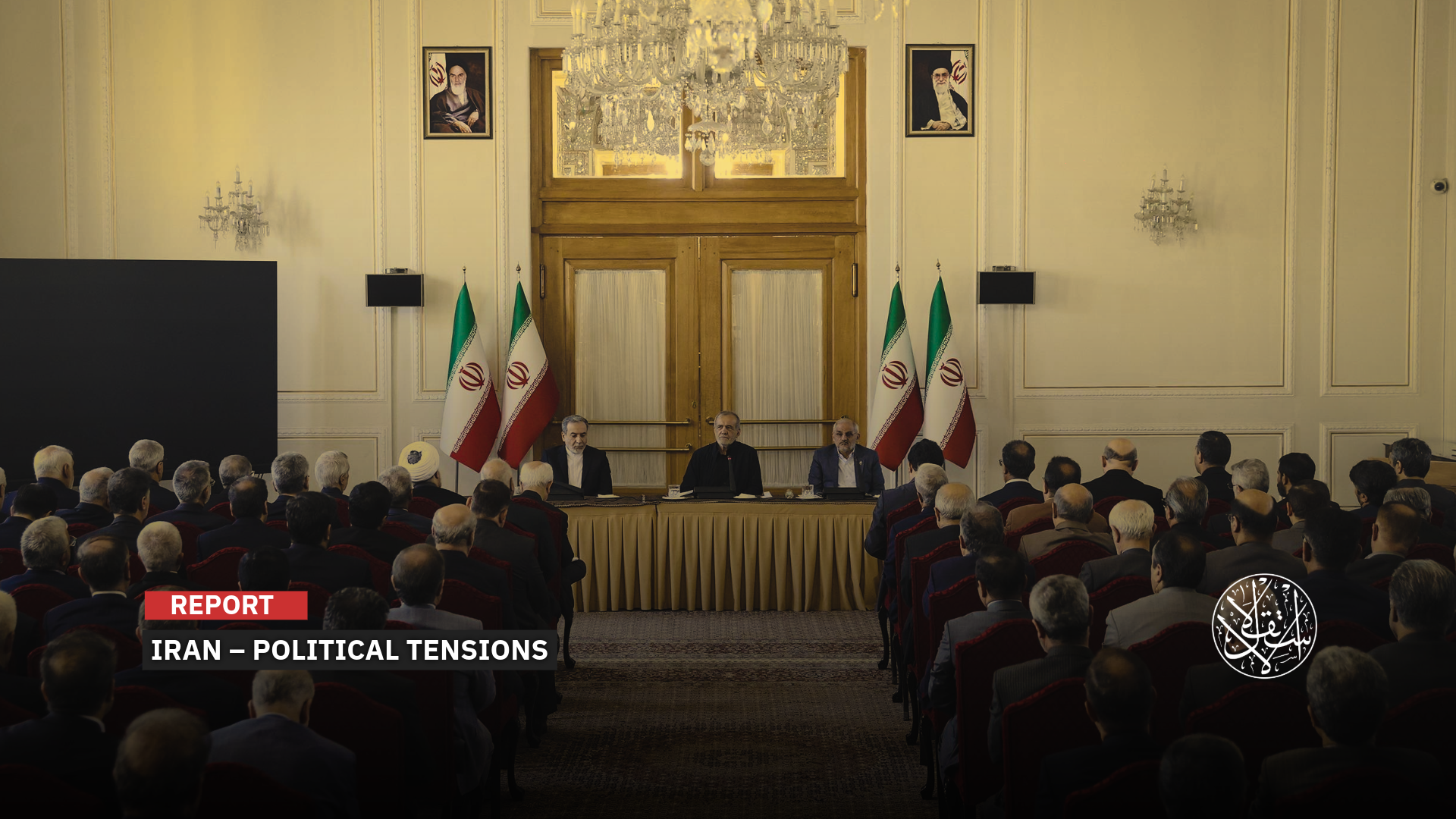
“A return to popular sovereignty as the only way out of Iran’s multiple crises.”
Disputes between the two main factions in the Iranian political system are not new, but the 12-day war with “Israel” and the escalating tensions with the West have significantly rekindled them, creating new dynamics that have reinforced these differences.
Former reformist President Hassan Rouhani's speech was one such call for change under the slogan ‘Iran First, the People First’. This was followed by another call from Mohammad Javad Zarif, Rouhani's foreign minister, who called for a paradigm shift in the regime.
Recent reformist calls for radical changes in the approach of the ruling establishment, including dialogue with the U.S. to avert the specter of war, have provoked outrage and rejection from conservative and hardline forces.
The crisis sparked by the recent reformist statement revealed a deep-seated conflict and sharp political polarization that goes beyond the dispute over the nuclear program.
While conservatives insist on linking any reformist discourse to a threat to national security, reformists insist on calling for constitutional changes and diplomatic approaches to ease external tensions.
Political Coordination
From the first day of the Israeli-American attack, Iranians transcended their political and sectarian differences and rallied behind the armed forces and security services in the name of national unity.
But in the wake of these events, some voices have become increasingly vocal, calling for radical changes to guide Iran toward a new era.
This has become clear with the successive calls by reformists in Iran for the ability to cope with internal and external threats, despite official rhetoric that emphasized that the country was more united than before the war.
The pressure on reformists intensified in parallel with the office of Iranian Supreme Leader Ali Khamenei's warning against those who repeat the enemy's rhetoric, raising questions and doubts about the veracity of officials' assertions about solidarity, unity, and internal reconciliation.
President Masoud Pezeshkian was the most insistent on emphasizing internal unity, in line with his slogan of achieving national reconciliation.
However, he was also the first to reveal the disputes at the top of the power pyramid after the country witnessed changes in the highest security body, which is subject to Khamenei’s authority, despite the Iranian president's symbolic role.
Days after the appointment of Ali Larijani as Secretary of the National Security Council, Pezeshkian said: “You don't want to hold talks? Then what's the alternative? Do you want to return to war?”
However, he pledged that he would not take any step without Khamenei’s approval and coordination, even if it contradicted his personal opinion.
Pezeshkian faced a wave of criticism for his statements, particularly from conservative lawmakers, who accused him of being soft on the West and called for his impeachment by parliament on charges of harming Iran's national security.
For his part, the deputy head of political affairs for the IRGC, Gen. Aziz Ghazanfari, said that the president's verbal errors increase during critical times, noting that foreign policy is not the place to tell all the truth.
“Reckless statements can have dire consequences and may cause the government greater harm, making its work in the complex political arena more difficult,” he added in an opinion piece.
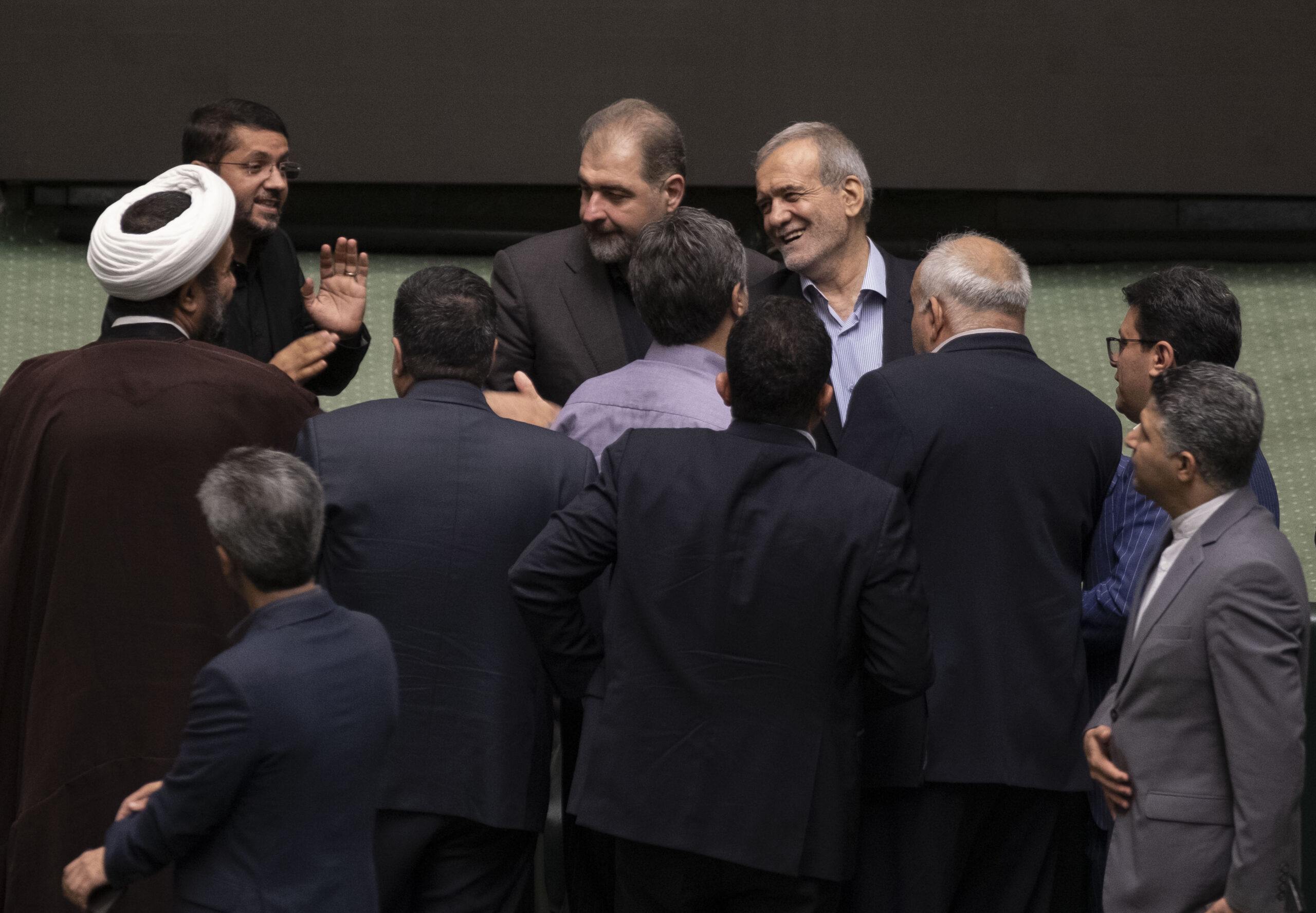
Radical Changes
In some contexts, reformist leader Mehdi Karroubi sent another shockwave through the political arena, explicitly criticizing the nuclear program.
He said that the Iranian regime wanted to bring the people to the top through nuclear energy, while it had brought the nation to the bottom of the abyss.
He pointed out that these policies reflect a regime that lacks a correct reading and understanding of the country's situation, and unfortunately, it has yet to offer any breakthrough in domestic affairs.
“Officials must return to the people and provide a basis for structural reforms based on the will of the nation so that Iran can survive, before it is too late,” he added.
He expressed regret that people were turning away from the revolution and the regime due to the poor performance of officials.
At the same time, former reformist President Hassan Rouhani, whose administration signed the 2015 Iran nuclear deal, called for foreign policy reforms.
He also called for strengthening relations with Europe and neighboring countries, and for reducing tensions with the U.S., considering this a duty, not an option.
He emphasized the need for a national referendum to chart a new strategic course reflecting the will of the people, based on developing the country and strengthening national unity.
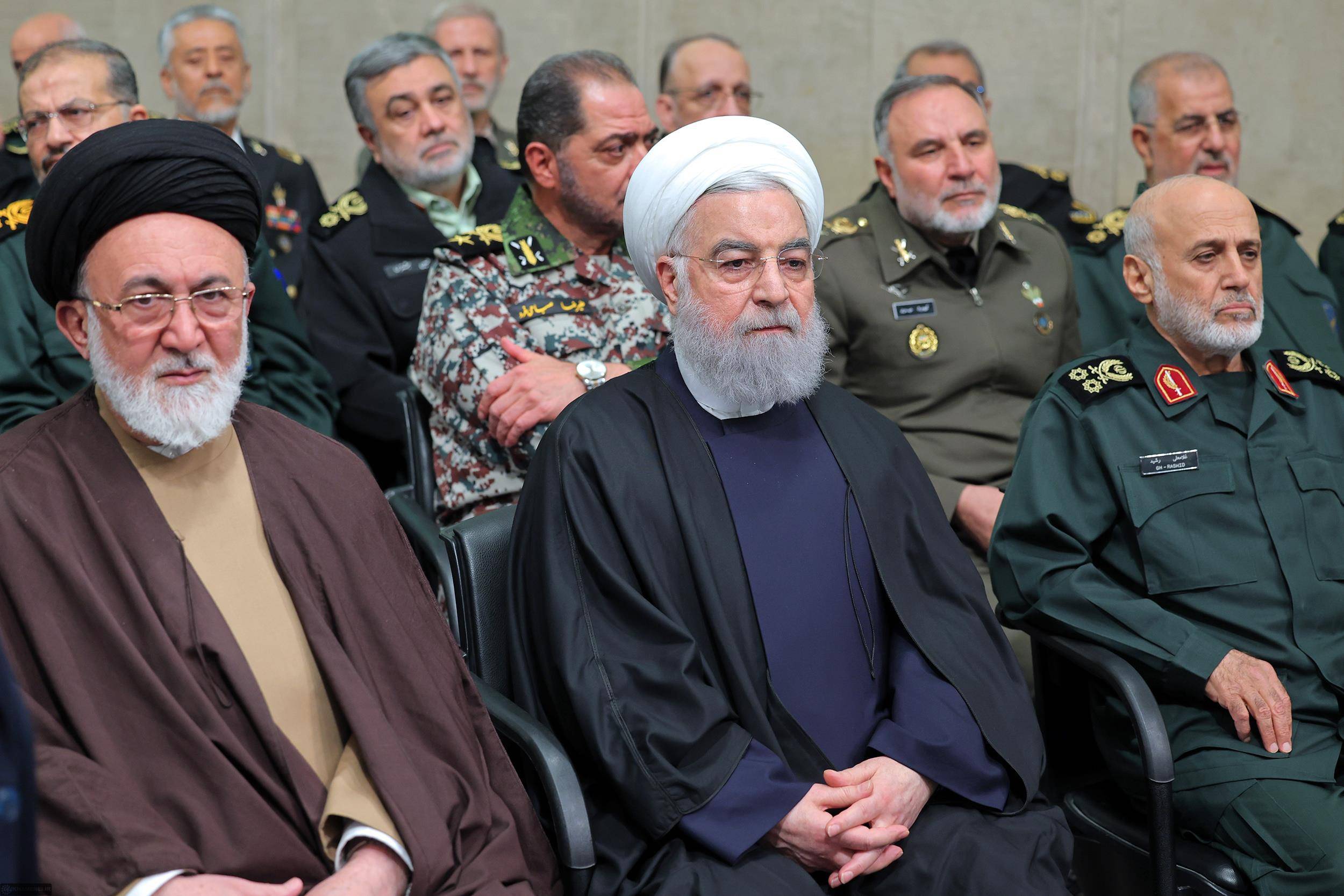
In an article published in Foreign Policy on August 15, former Iranian Foreign Minister Mohammad Javad Zarif called for Iran and the West to return to the negotiating table.
The minister, who signed the 2015 nuclear deal, urged a paradigm shift in the region, shifting from an approach based on constantly confronting threats to one focused on seizing opportunities.
Zarif's article follows his participation in a joint statement issued by 78 former diplomats, who pressed for a foreign policy more in tune with public sentiment.
In July, former Prime Minister Mir-Hossein Mousavi, still under house arrest since 2011, called for a national referendum to form a constitutional assembly, arguing that the current political system does not represent all Iranians.
Other dissidents, such as Abolfazl Ghadyani, argued for moving beyond the political legacy of Ayatollah Khomeini, calling his doctrine of Velayat-e Faqih (Guardianship of the Jurist) the root of Iran’s authoritarianism.
Sociologist Saeed Madani, who is currently imprisoned, criticized Iran’s uranium enrichment policy, arguing a fundamental policy shift to avoid renewed international confrontation.
18 political and civic figures also signed a joint statement warning that Iran stands at a crossroads of the most critical moment in its modern history, demanding urgent reforms to prevent deeper crises.
This joint appeal reflected a growing sense among reformist and civil society voices that the Islamic Republic faces not only external pressures but also deep internal fractures.
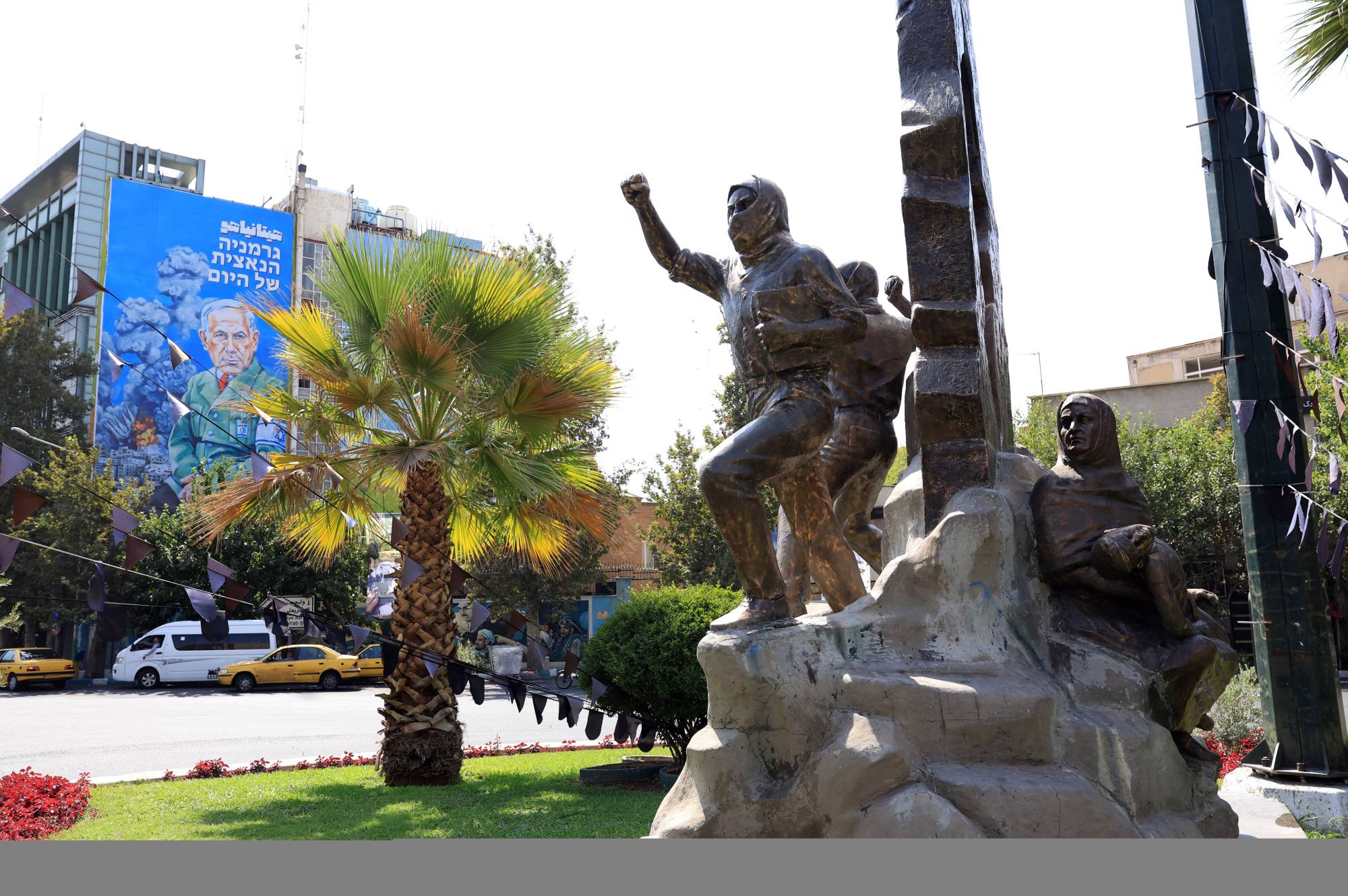
Reformist Roadmap
In a statement published on August 17, the Reform Front in Iran, which includes about 30 parties in the reformist alliance supporting the current government, unveiled an urgent roadmap for political reforms, emphasizing that the country faces a host of risks and threats.
It emphasized that reforming foreign policy based on national reconciliation and rapprochement between Iranians inside and outside the country is the only way to save Iran and a golden opportunity for change and a return to the people.
It called for a general amnesty for political and religious prisoners, lifting restrictions on prominent political figures, and shifting the government's discourse toward national development and the well-being of citizens.
It emphasized restoring government powers, reducing the interference of parallel institutions, and returning military forces to the barracks and withdrawing them from politics, the economy, and culture.
It addressed the need to reform the approach and management of radio and television, freedom of the media, abolish censorship, and amend laws related to women's rights.
It stressed the importance of regional integration to achieve lasting peace, and of exploiting opportunities for cooperation with neighbors, Saudi Arabia and other regional countries to reshape Iran's image as a peaceful nation.
Some reformist politicians and activists expressed reservations about the Reform Front's statement.
The reformist daily Ham-Mihan, linked to the Executives of Construction Party, said the statement reflected aspirations rather than a practical roadmap.
Saeed Nour Mohammadi, spokesman for the reformist Neda-ye Iranian party, opposed issuing such manifestos that escalate tensions and create binary divides.
Reformist political activist Mohammadreza Jalaeipour considered the reform roadmap to be nothing more than a list of hopes without any clear path to achieving realistic goals.
Reformist Journalist Mohammad Quchani criticized the statement, saying it weakened the Pezeshkian government.
Reformist political analyst Ahmad Zeid-Abadi wrote in an article: “Issuing the Reform Front's statement at this time was a mistake because it provides an ideal pretext for hardliners to incite their propaganda against the reformists.”
Pragmatic conservative Ali Motahari argued that suspending uranium enrichment was unrealistic since Western powers would demand further concessions on missiles and regional policy.
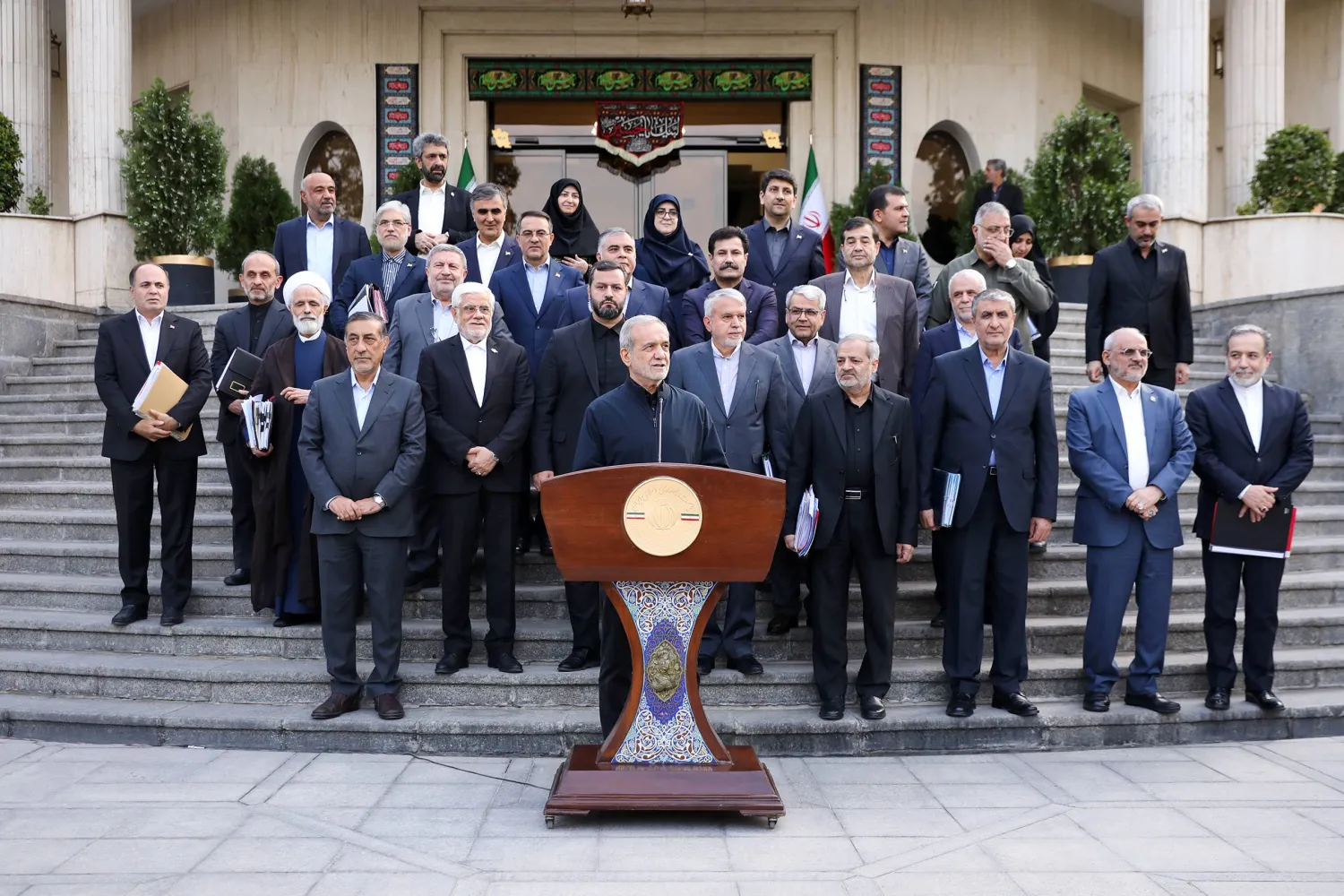
Fifth Column
Conservative outlets close to Khamenei and IRGC have condemned the reform proposals as dangerous, treasonous, delusional, and capitulation to the West.
They quickly sought to portray the new initiative as both politically subversive and ultimately doomed.
The Voice of Iran newspaper warned the reformist movement against filling the ammunition depot of the country's enemies.
IRGC-linked Tasnim News Agency warned that reformists’ calls for sweeping policy changes resembled 'a Gorbachev moment', referring to the concessions that led to the mistakes that dismantled the Soviet Union.
IRGC-linked Fars News Agency described the reformist roadmap as a charter of submission.
The ultra-hardline daily Kayhan, funded by Khamenei’s office, derided the document as a Persian translation of Netanyahu’s speeches.
In another article, the hardline outlet described the proponents of the statement as the fifth column.
IRGC-affiliated Mashregh News Agency accused Reformists of trying to contain Iran and slammed the statement for suggesting direct talks with the U.S.
The hardline outlet alleged that the Reformist Front sought, through talks and engagement, to hand over what the enemies could not wrest from Iran through war and sanctions.
The conservative Vatan Emrooz newspaper reported that the Reform Front's statement encourages the U.S. and “Israel” to launch a new military attack against Iran.
Hardline lawmakers have sharply criticized the statement, alleging that Reformists overlook Iran’s capabilities and accusing the authors of the statement of aiding hostile nations.
Sadegh Mahsouli, secretary-general of the Paydari Party, framed it as the opening move of a new sedition designed to fracture the country.
An adviser to Parliament Speaker Mohammad-Bagher Ghalibaf called the document a dagger to the heart of national unity.
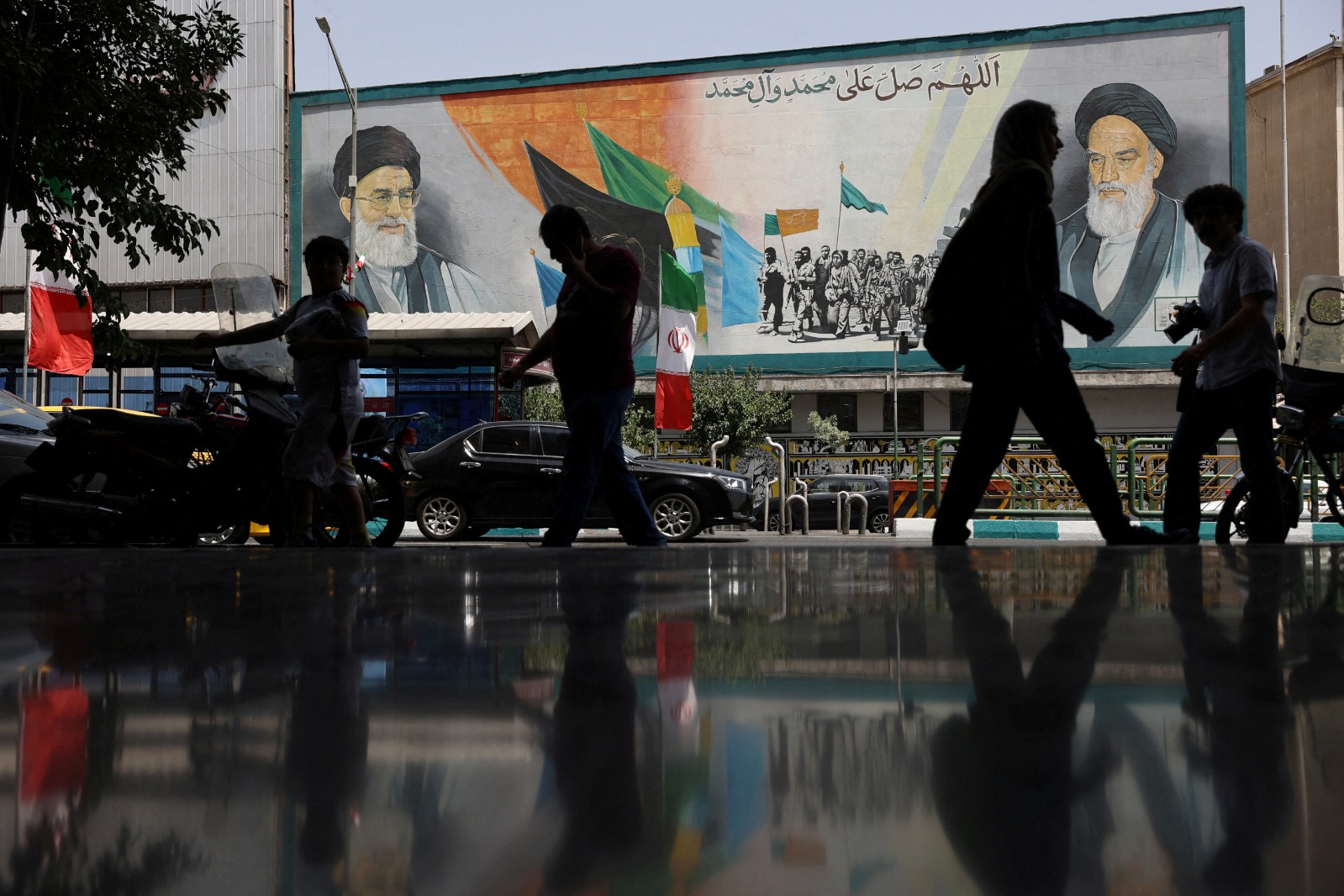
On August 24, Supreme Leader Khamenei criticized the Reformist Front's statement but called for support for President Pezeshkian, describing him as a tireless fighter.
But analysts believe that Khamenei's message was intended for everyone, not just the reformist movement, and indicated that Iran was continuing its dialogue with the West without backing down from its right to a peaceful nuclear program.
Taking advantage of Supreme Leader Khamenei's speech calling for support for his government, Pezeshkian said on August 25: “Any word that undermines our national unity is treason!”
It is noteworthy that Pezeshkian's statement was directed at the hardliners who threaten the stability of his government at a time when Iran is experiencing internal and external crises.
In an implicit criticism of the conservatives, he stated that “there must be parties, but we must not allow conflict. We must not seek power, but rather work for the good of the people.”
According to informed sources, Pezeshkian and the decision-making circles in Iran have reached a consensus to resume nuclear negotiations, as a necessary step to ensure the survival of the Islamic Republic.
Sources
- Escalating Political Tensions in Iran: Khamenei’s Defiance, Pezeshkian’s Defense, and Reformist Pushback
- 'If not treason, then what?' Iran hardliners torch reformists’ manifesto
- The Time for a Paradigm Shift Is Now
- Moderates tell Tehran to offer enrichment halt for sanctions relief
- Iran hardline media warns reformists risk 'Gorbachev moment'













